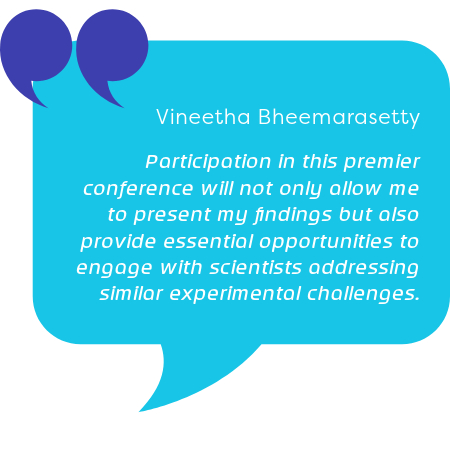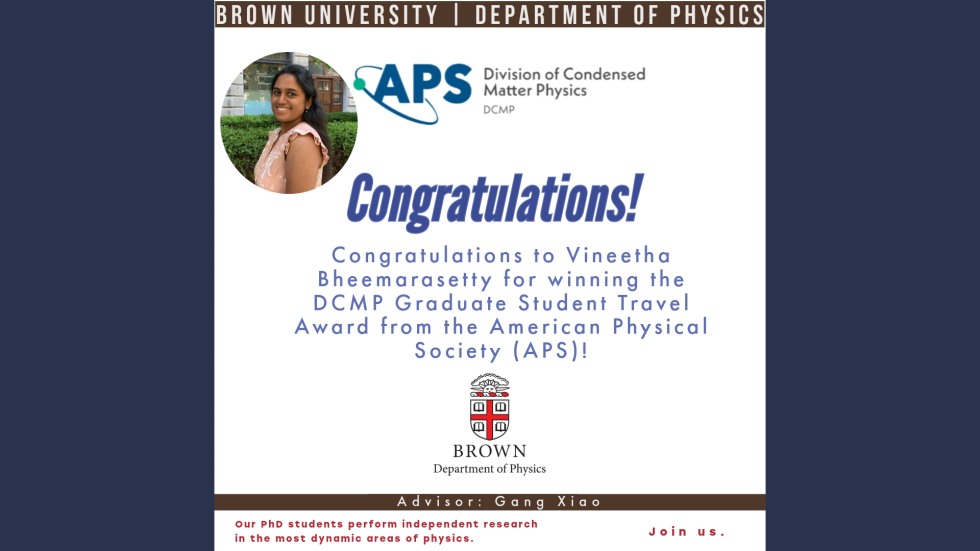
Receiving the DCMP Graduate Travel Student Award provides me with an invaluable opportunity to showcase my research of quantum materials suited for transformative spintronic devices. Through my research I investigate the elusive properties of chromium dioxide (CrO₂), a prominent member of the half-metallic oxide family. With nearly perfect spin polarization, a high Curie temperature of 390 K, and double-exchange ferromagnetic ordering above room temperature, CrO2 offers immense potential for next-generation spintronic devices.
By studying the relatively unexplored regime of epitaxial CrO₂ thin films under extremely low temperatures (1.8 K) over an extensive magnetic field range (24 T), I have observed, for the first time, thickness-dependent quantum oscillations in its magnetoresistance that have only been theorized till date. These findings provide new insights into the 2D properties of thin CrO₂ films, contributing significantly to our understanding of exotic half-metals and their applications in future technologies. The technical expertise that I’ve gained during my PhD in synthesizing and characterizing such high-quality thin films and conducting precise magnetization and electron transport measurements has been pivotal in advancing this work.
I am also extremely grateful for the additional support I have received from the department via the Jun Qi & Christine Geng Graduate Fellowship in Condensed Matter Physics in supporting this project.
Participation in this premier conference will not only allow me to present my findings but also provide essential opportunities to engage with scientists addressing similar experimental challenges. I aim to refine my techniques, identify how my research fills specific gaps in the field, and find inspiration for new directions for my ongoing work. Engaging with the scientific community at APS meetings has been transformative in many ways. For example, at the 2023 APS March Meeting, I initiated a collaborative project with another research group, which has since resulted in a manuscript which is currently under review. The meeting also revealed the broader applicability of my work, extending into areas like defense and quantum computing, and inspired me to design projects that address critical scientific challenges.
In addition to advancing my research, this award will foster my professional development as I approach the end of my PhD while also enabling me to contribute meaningfully to the scientific dialogue within the field. This will be instrumental in establishing valuable collaborations that will contribute to the continued success of my research group, the Nanoscale Physics and Quantum Devices Lab at Brown University, and promote my growth as a scientist.
